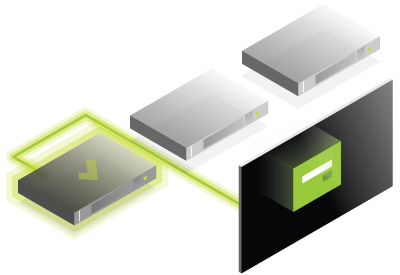Whether your data is housed on in house servers, outsourced physical setups, or cloud servers, it’s important to remember that virtualization and virus protection can help protect your system from viruses, malware, and security breaches. Deep security style products provides a centralized platform that makes it easy to consolidate and manage security activities across your system from a single interface. This ensures that all routine security updates are being dealt with and that your system will be protected against the latest threats that can cause business interruptions and expose customer data. Here’s how protecting your virtual environments can work for your business.
Protecting virtual servers
Server virtualization can dramatically increase your VM density rates. The best solutions offer an integrated platform that allows you to define, maintain, and monitor secure parameters on virtual environments. Virtualization allows you to manage these aspects without sacrificing performance or levels of security.
Virtualizing local desktops and laptops
If your team, particularly your developers, work on virtual machines then conceptualizing your options for security can be a challenge. Security programs for virtual desktops shouldn’t compromise performance or consolidation ratios. The best virtual security options are configured for a wide range of virtual desktop environments. They offer protection and provide defense against malware, intrusions, data leaks, web application malfunction, establishing firewalls, and more. It’s also important to look for a program that doesn’t disrupt the virtual environment or underlying host.
Patching and Cloud Protection
When you’re hosting application data in the cloud, these individual applications are subject to standard software vulnerabilities. Often it’s critical to have the ability to apply patches in real time. Choose a virtual patching solution that enables you to modify the necessary code while minimizing application downtime. This approach will allow you to protect your servers, applications, and endpoints while reducing the risk of a data breach. Cloud protection provides a layer of security that provides both policy level support and encryption. Look for systems with the flexibility to do cross-cloud management.
Virtual Compliance
Many industries – including financial, legal, and healthcare – are subject to complex regulatory compliance requirements. The risks of creating virtual development environments or storing data in the cloud are significant. Breaches can carry massive financial penalties and even legal consequences. If you’re in this situation, it’s important that you choose a provider that offers the flexibility to customize your environment in such a way that allows you to meet regulatory demands. The best systems provide multiple options for fulfilling the requirements of PCI DSS 2.0, HIPAA, NIST, SAS 70, and many others.
If your company is moving more data than ever before to the cloud, managing the security of your virtual environments is critical. Lapses in security can result in data breaches, viruses, and other complications that can cause your business to grind to a halt. As a result, it’s critical that you have a solid deep security platform in place that lets you monitor and maintain the integrity of your virtual environments at all times.





